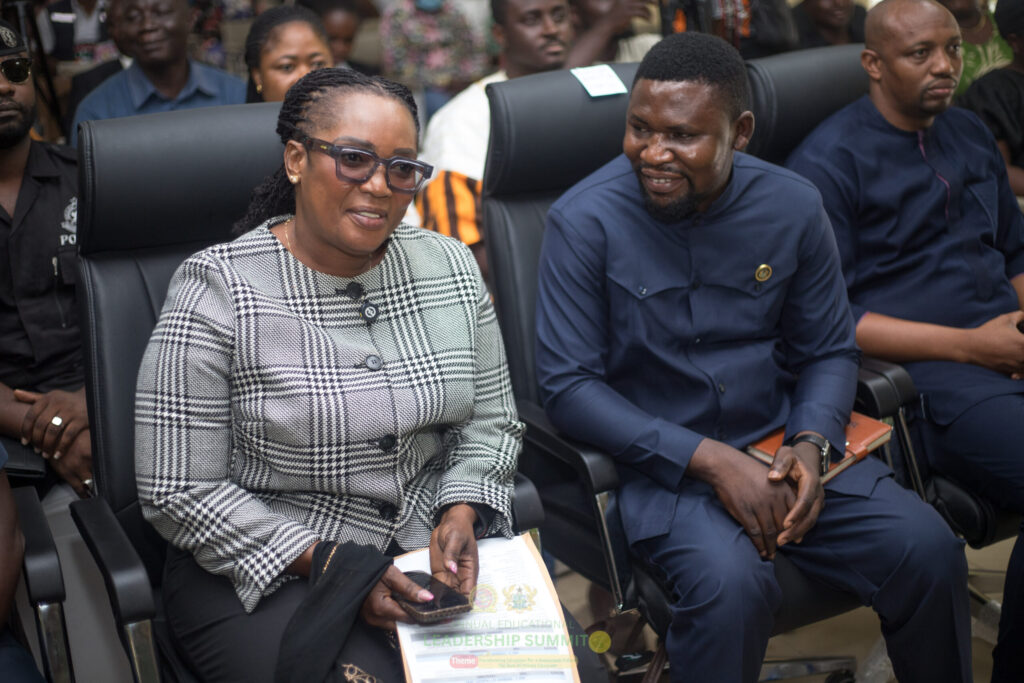The Eastern Regional Minister, Mrs. Rita Adeji Awatey, has assured Ghanaians that John Dramani Mahama’s government acknowledges and appreciates the ongoing contributions of private schools in providing quality education in the country.
The Minister stated that the government is dedicated to enhancing collaboration with the private sector to advance teacher learning and professional development. Additionally, it aims to align the curriculum with the skills required for the 21st-century workforce by supporting digital transformation in schools and promoting policies that encourage sustainability.
While speaking at the ongoing 2025 Private Schools Annual Educational and Leadership Summit in Bunso, Eastern Region, under the theme “Transforming Education for a Sustainable Future: The Role of Private Education,” Mr. Awatey emphasized that 21st-century education is about preparing students to live responsibly in a global community. This includes integrating environmental education into curricula to develop eco-conscious citizens.
She mentioned that this can be achieved by utilizing technology to combine learning with digital literacy, ensuring that quality education is available to everyone, regardless of their socio-economic status, and fostering values such as integrity, empathy, and civic engagement among students.
In this context, private schools can set an example by implementing sustainable practices in their operations, from energy efficiency in school buildings to community projects that encourage environmental stewardship.
She revealed that the government will collaborate closely with private schools to address the challenges facing private education, including the inclusion of 60 private schools in the free senior high school policy during the pilot phase.
The government will keep providing a policy framework and infrastructure to foster creativity, innovation, and leadership in the private education sector. This collaboration aims to develop learners who are not only academically skilled but also possess the ethical values, resilience, and skills needed to create a better Ghana and a better world.
The Executive Director of the Ghana National Council of Private Schools (GNACOPS), Obenfo Nana Kwasi Gyetuah, has urged the government of Ghana and parents to view education as the foundational element for building great nations.
Obenfo Gyetuah pointed out that throughout history, from great civilizations to today’s successful economies, countries that have invested heavily in education have enjoyed the benefits of innovation, productivity, and social harmony. Therefore, the Ghanaian education system must not only keep up but should lead the way.
As a nation, we cannot depend on outdated methods to prepare our youth for the complexities and opportunities of the 21st century, where technological changes are constant, the climate crisis is altering our environment, and the job market is rapidly evolving with new skill demands.
Obenfo Gyetuah emphasized that the theme calls on all Ghanaians to aspire to a higher vision, a stronger commitment, and a more coordinated action plan to secure the future of our children and the nation.
He noted that in the effort to transform Ghana’s education, private education is not merely an alternative but a fundamental component. From busy urban areas to the most isolated rural communities, private schools have served as a vital link for millions of children to access quality education.
“Private education has stepped in where resources are limited, where government facilities are overwhelmed, and where innovation is urgently needed. We share a united commitment to nurturing minds, shaping character, and inspiring the next generation of Ghanaian leaders,” he stated.
The Council expressed gratitude to the Ghanaian government for increasingly recognizing private education as a vital partner in achieving inclusive and equitable learning for everyone through the flagship free SHS policy.
We also praise the Ministry of Education and its agencies for enhancing private sector representation in educational governance by acknowledging GNACOPS leadership on important statutory boards like the National Teaching Council (NTC) and the National Schools Inspectorate Authority (NaSIA). This shows a strong government commitment to integrating the views, expertise, and contributions of the private education sector.
To ensure sustainable governance for private schools while maintaining quality, the council has expanded digital learning initiatives, equipping teachers and students with modern tools to improve learning outcomes. We have also introduced targeted professional development programs for teachers and administrators, elevating the standards of instruction and leadership.
Additionally, we launched the GNACOPS Vehicle Supply Partnership Initiative—an effort that directly addresses the pressing national issue of unsafe school transport by negotiating affordable buses that comply with national safety standards, ensuring that the journey to education is never a danger to children.
Beyond these concrete projects, we have strengthened our advocacy role by engaging with policymakers, forming partnerships, and promoting private education at both national and international levels.
Obenfo Gyetuah mentioned that GNACOPS has identified seven essential operational units: Coordination and Policy Development Unit, Financial Sustainability and Developmental Support Unit, Curriculum Standardization and Educational Development Unit, Research, Innovation and Stakeholder Engagement Unit, Support Services and Advocacy Unit, and Support Services and Advocacy Unit.
These units, he stated, are designed to protect, promote, enhance, sustain, and primarily to make private education more competitive in the country, contributing to the development of a robust education system that will foster growth.
“To the government of Ghana, I assert with certainty, Private education is not competition—it is completion. We do not operate parallel to the national education system; we are a vital component of it.


